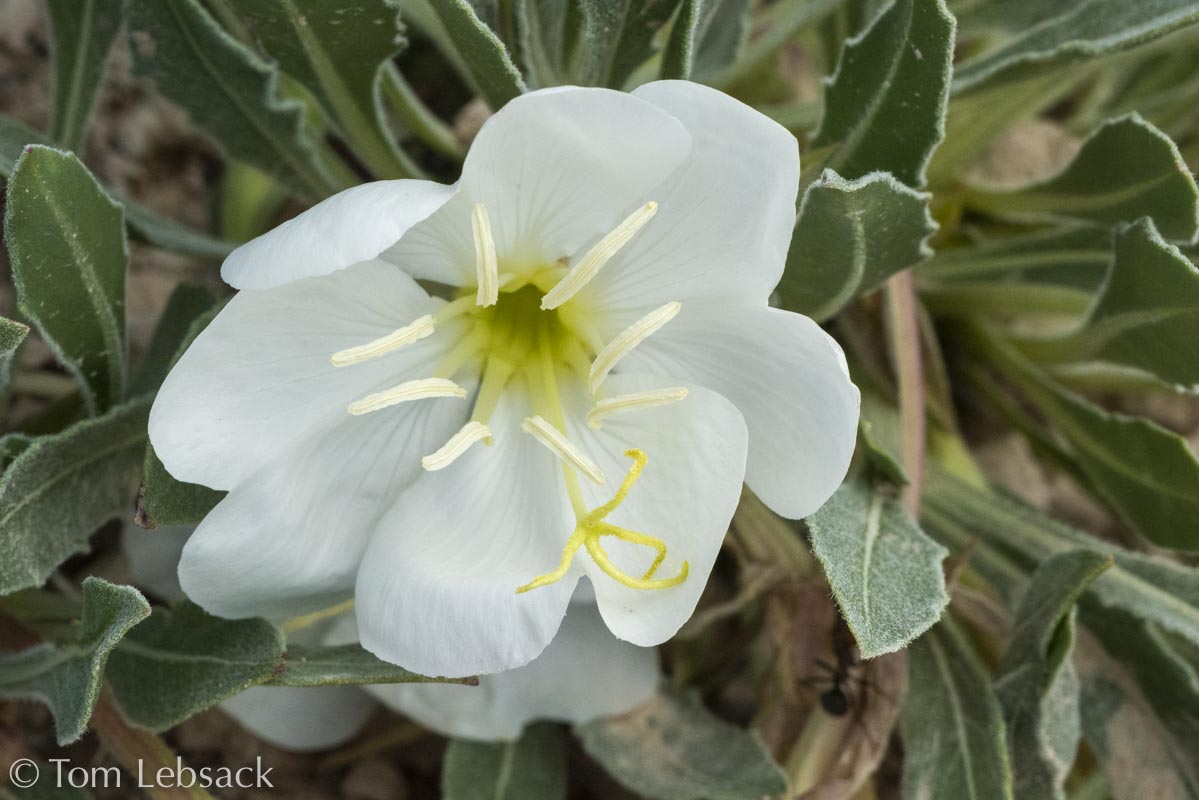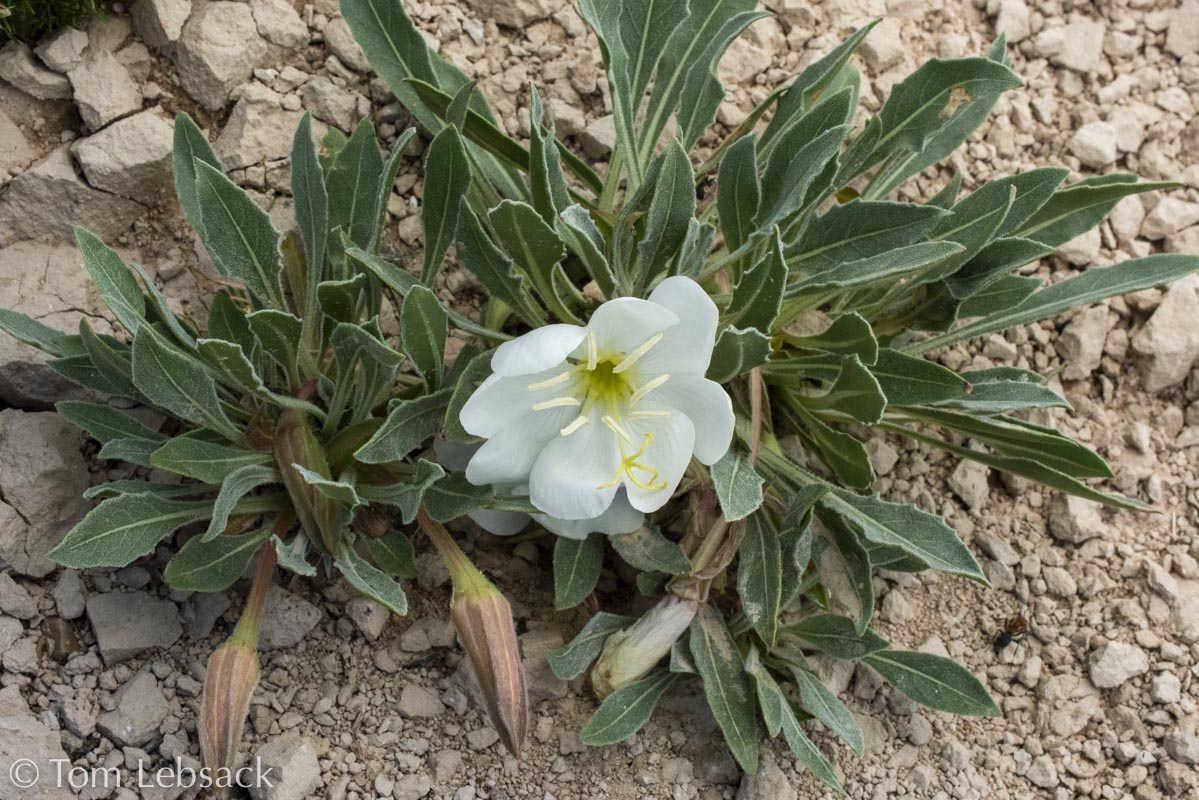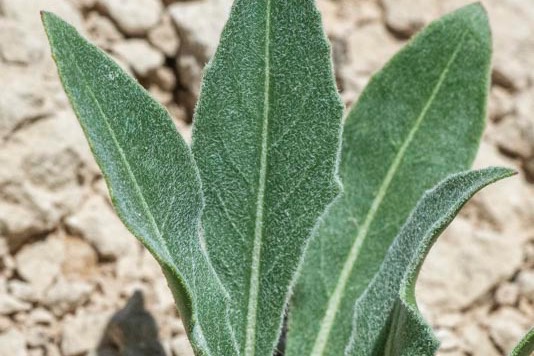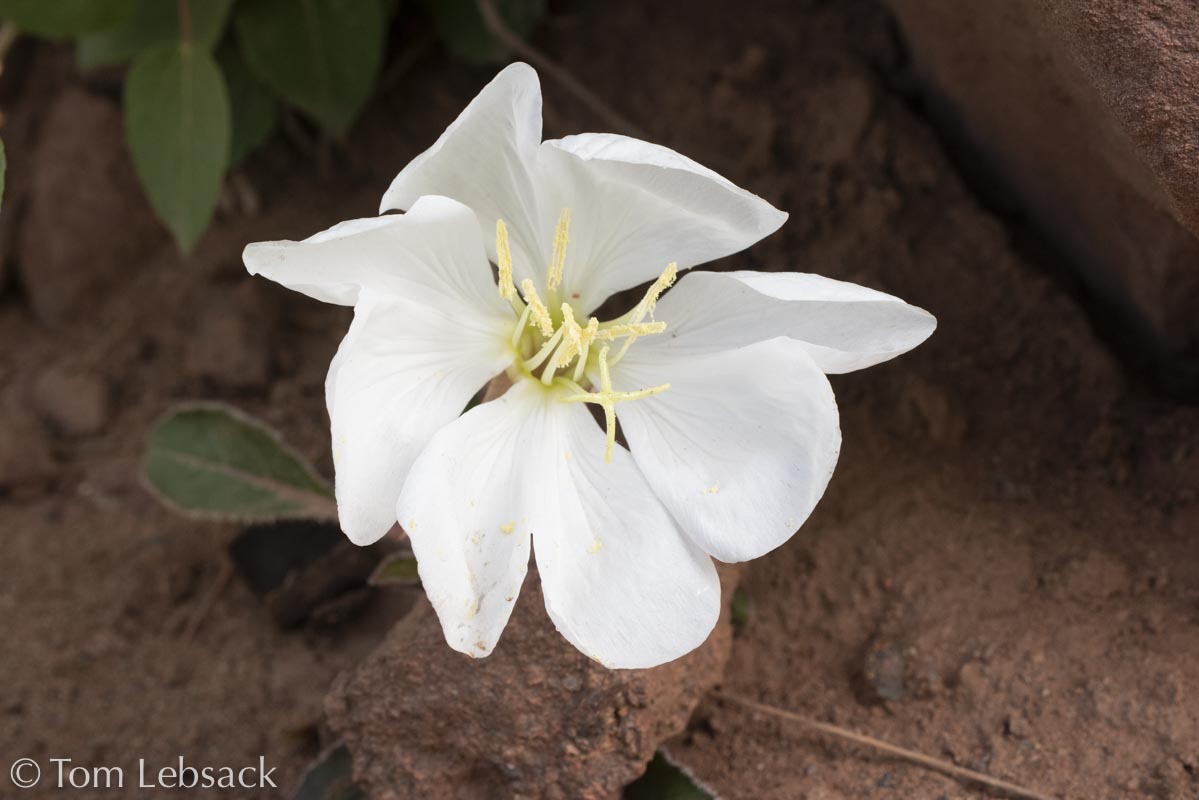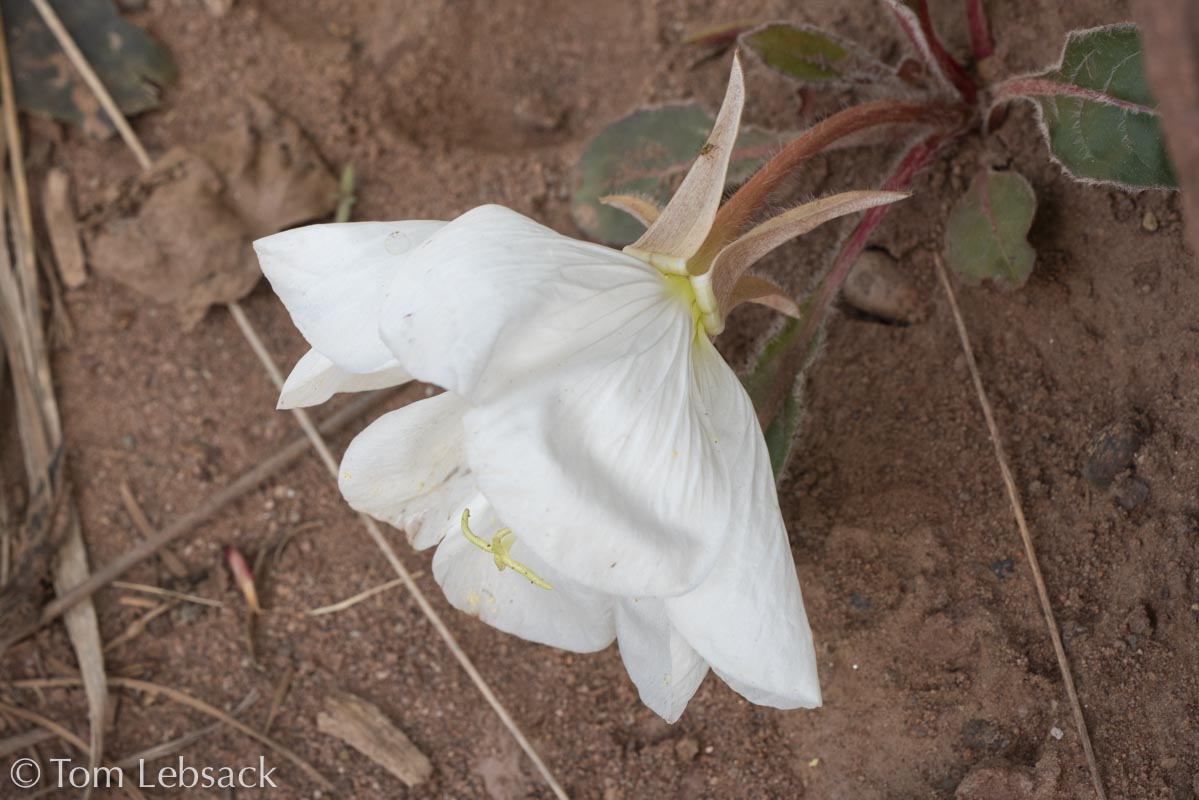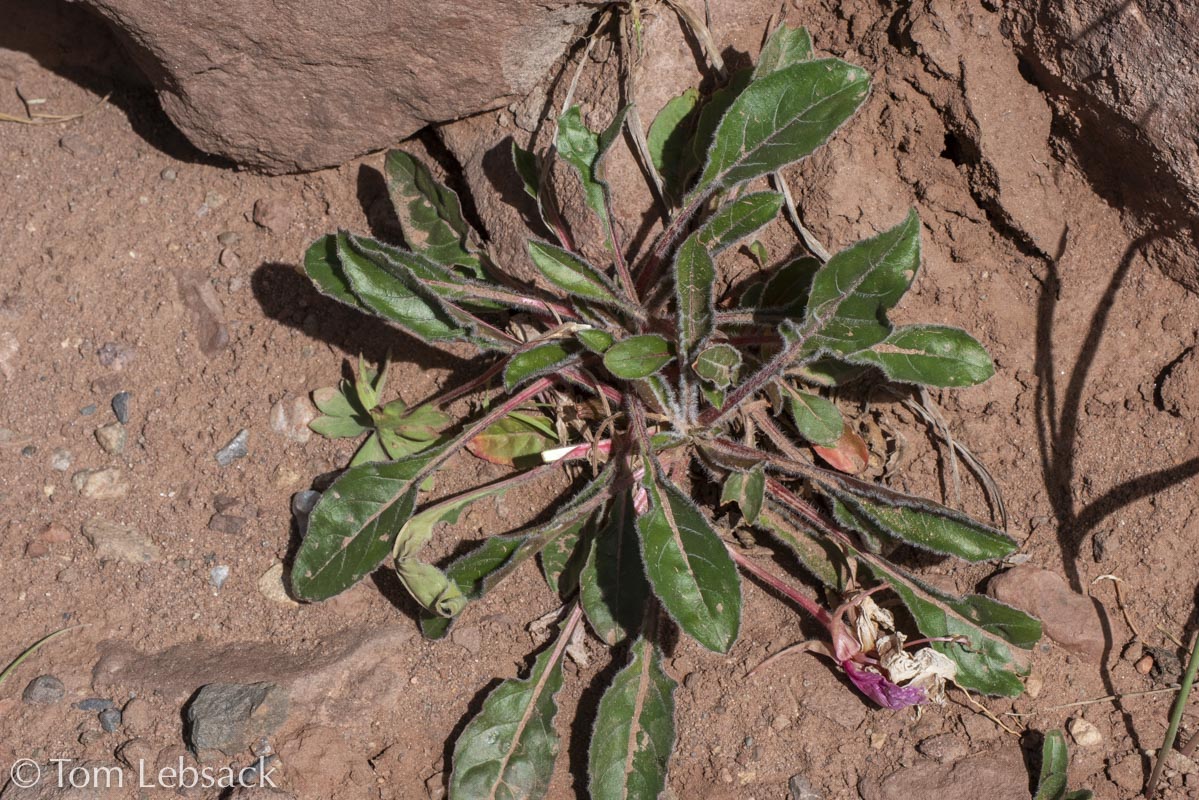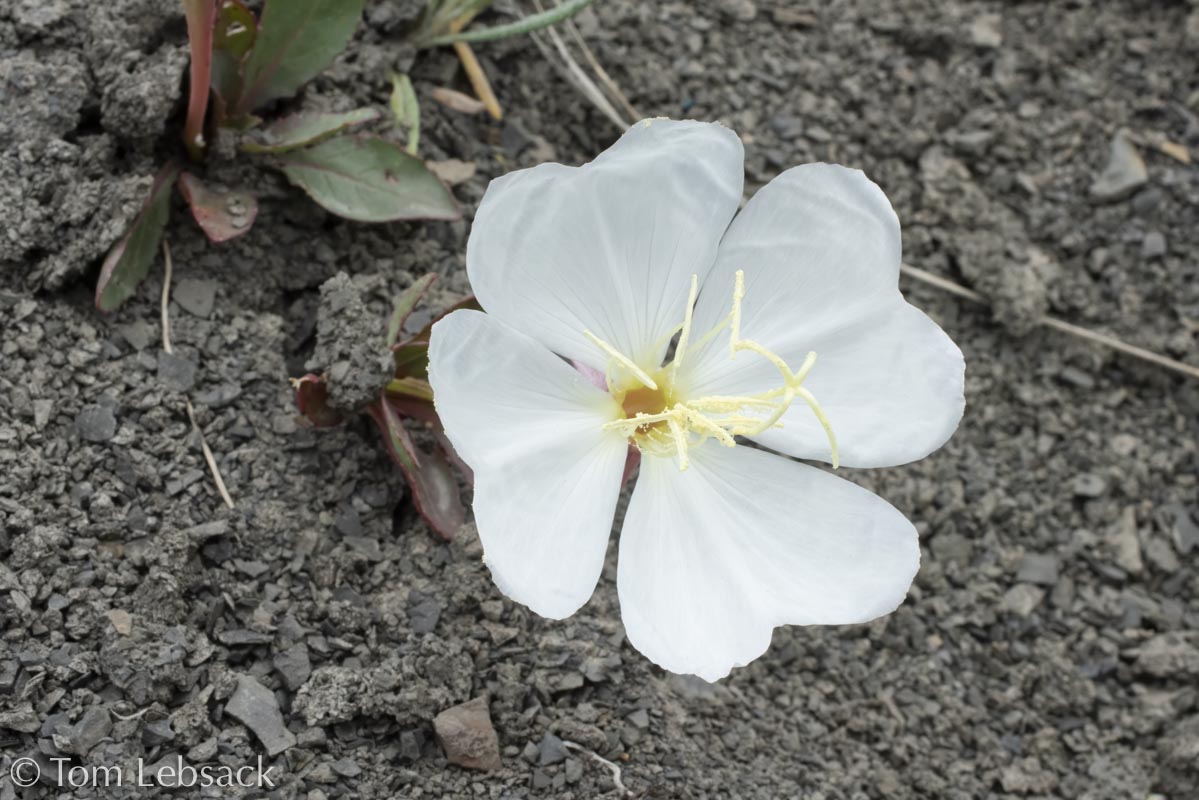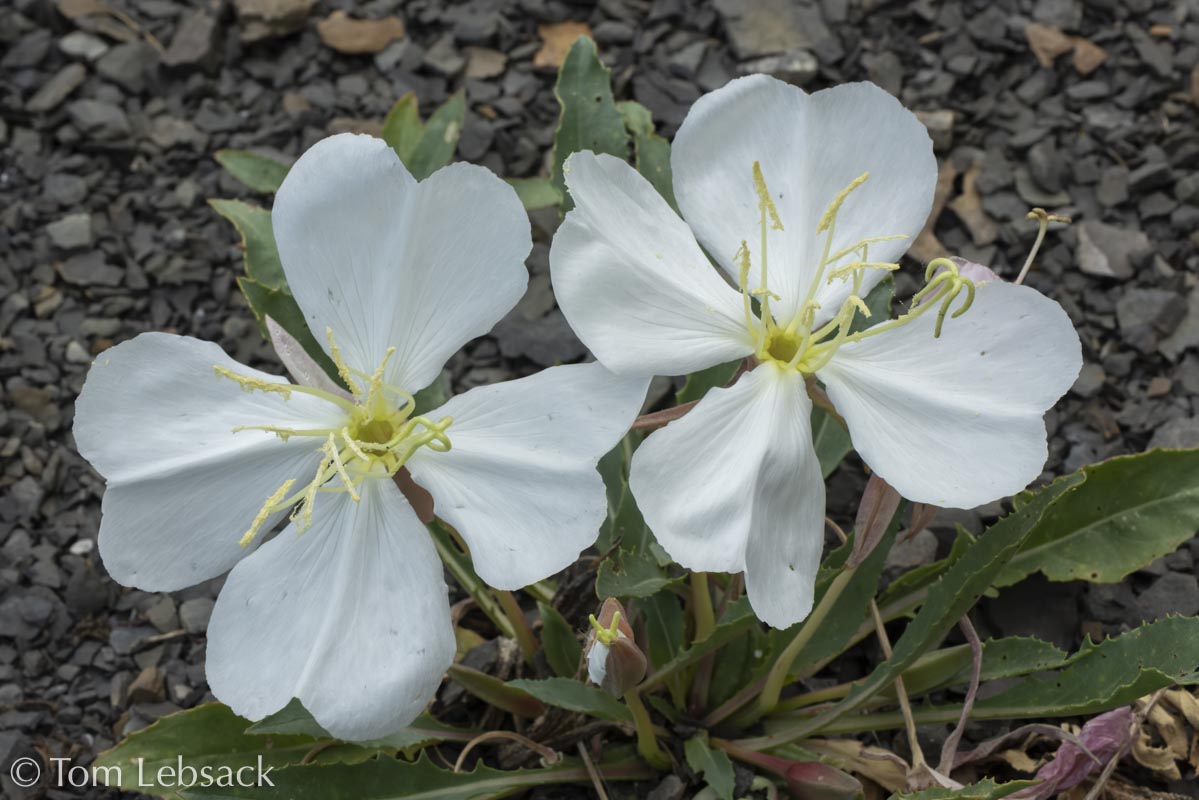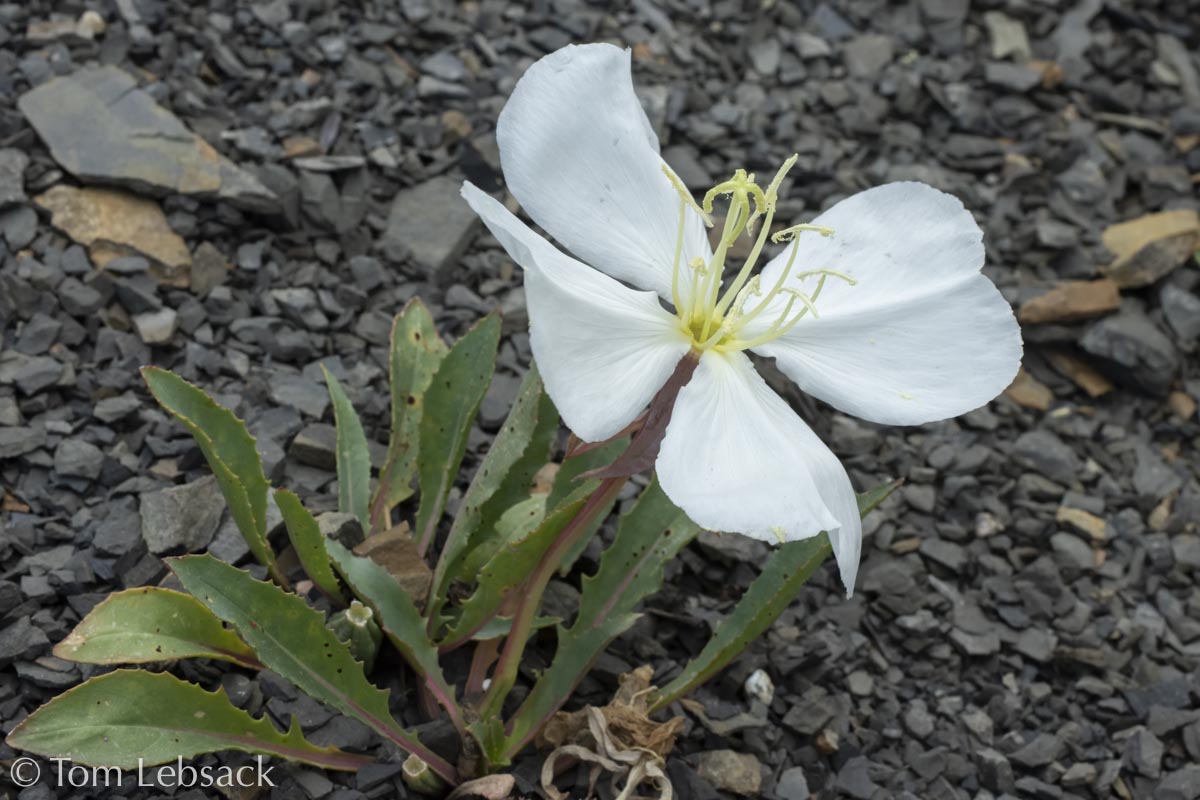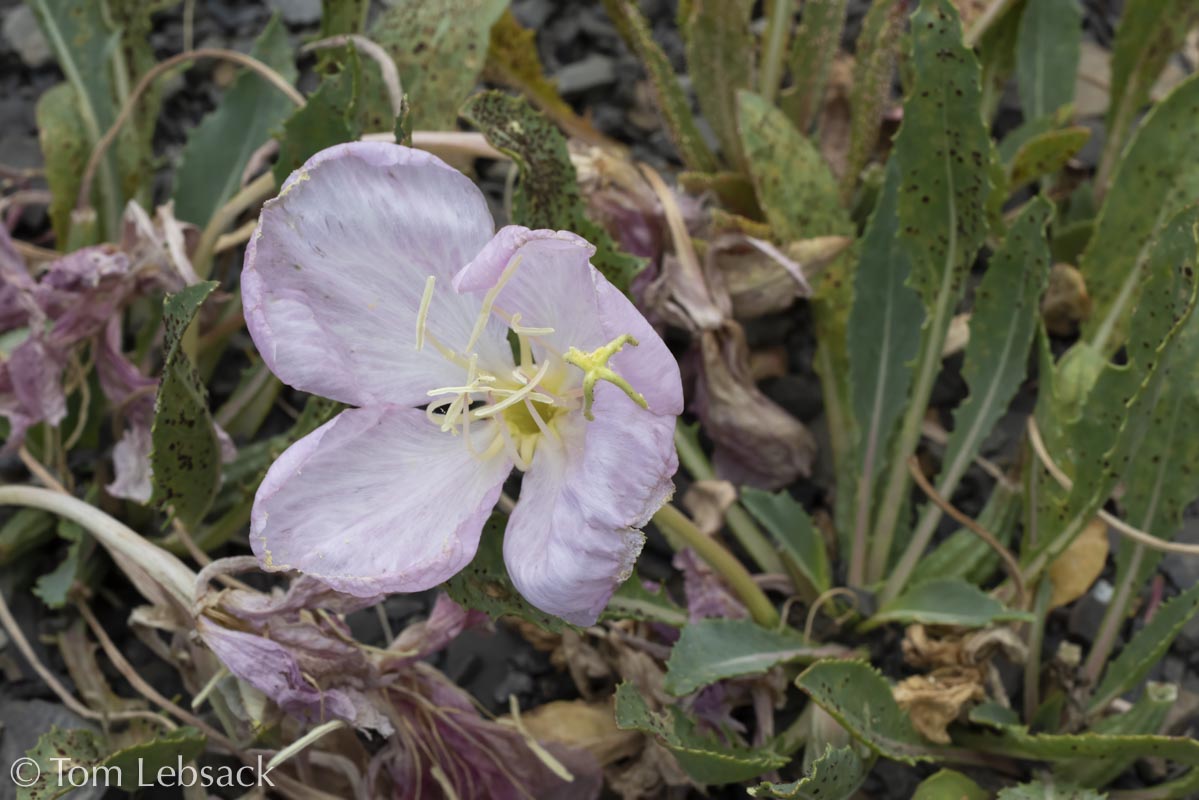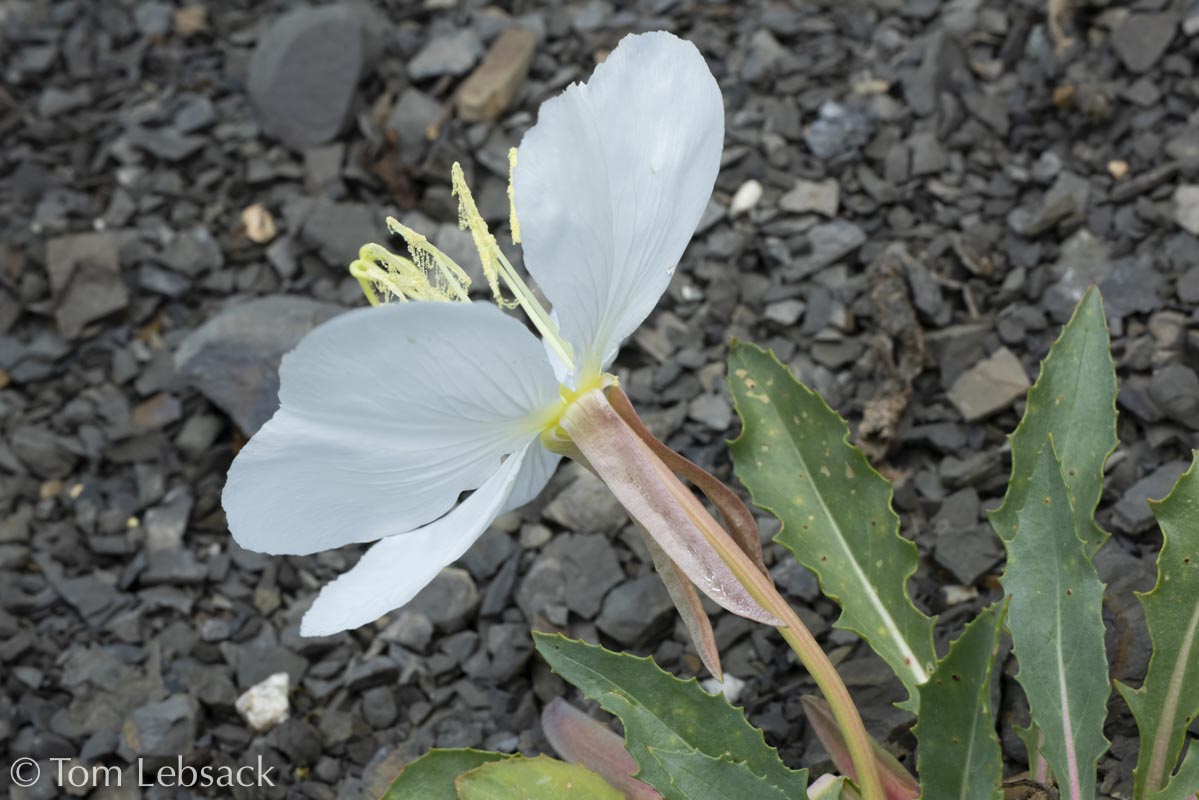(Tufted Evening Primrose)
| Scientific Name | Oenothera cespitosa ssp. cespitosa (Oenthera caespitosa ssp. caespitosa) | USDA PLANTS Symbol | OECAC2 |
| Common Name | Tufted Evening Primrose | ITIS Taxonomic Serial No. | 27383 |
| Family | Onagraceae (Evening Primrose) | SEINet Reference |
Click Here |
| Description |
Life zones and habitat: Plains to montane (4600 to 10000 ft.); scattered or forming colonies in various types of dry soils and conditions: clay, sandy, shale, volcanic soils; flats, badlands, bluffs, exposed rocky ridges, roadcuts, grasslands, sagebrush and exposed sites in montane conifer forests.
Plant: Perennial growing in tufts, up to 12 inches tall, usually stemless; herbage with very short hairs. Leaves: Basal, petiolate leaves with lanceolate to elliptic blades, 4 to 10 inches long (including petiole) and 3/8 to 1-inch across; margins dentate or irregularly pinnatifid to entire. Inflorescence: Large, white, showy, solitary flower borne directly (usually) or on a short pedicel 1-1/4 inches long from among the leaves; floral tube is 1-5/8 to 2-3/8-inches long, petals fading to rose-pink or rose-purple; pink with age; greenish to reddish floral tube 1-1/2 to 5-1/5 inches long; 4 downward-pointing sepals 3/4 to 2 inches long; protruding style with 4-pronged stigma and 8 protruding white stamens; flowers open around sunset and wilt the next day. References: "Flora of Colorado" by Jennifer Ackerfield, SEINet, Flora of North America, UW Burke Herbarium and Washington State DNR. Note: There are several subspecies and the plants shown here from the Pawnee Buttes and Cuchara areas are most likely ssp. cespitosa and the ones from Green Mountain Reservoir in Summit Co. could be the same or ssp. macroglottis. |
BONAP Distribution Map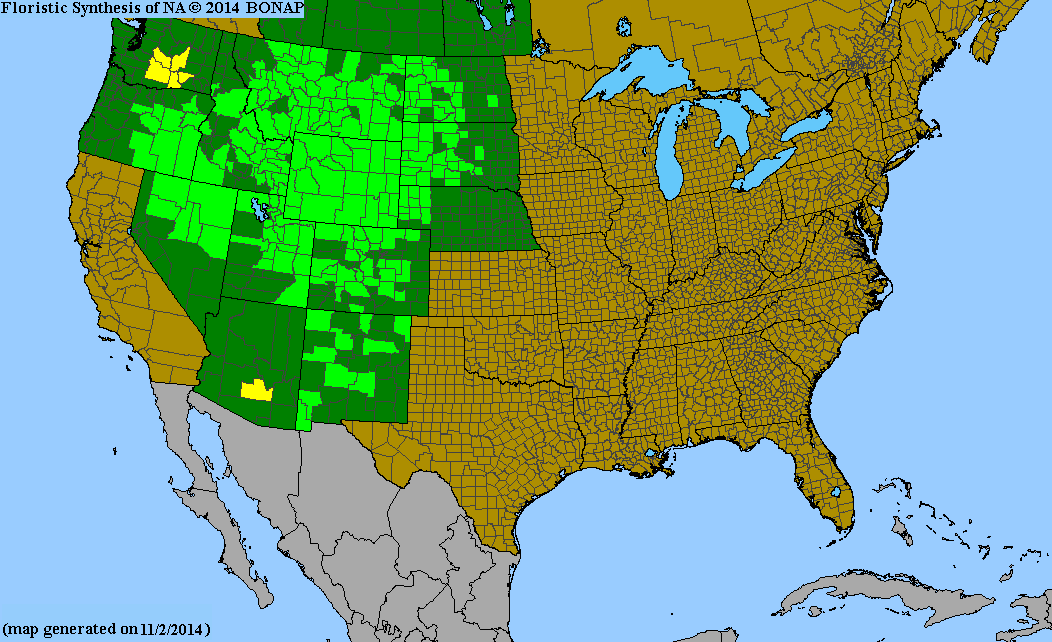 Map Color Key |
Colorado Status: Native |
© Tom Lebsack 2026
Banner photo: Castilleja rhexifolia and a brewing storm over the San Juan Mountains
I try to provide accurate, up-to-date, and relevant information, but cannot guarantee the completeness or accuracy of any information presented on this website. I use authoritative references to insure high standards of accuracy and review and update the information frequently.
